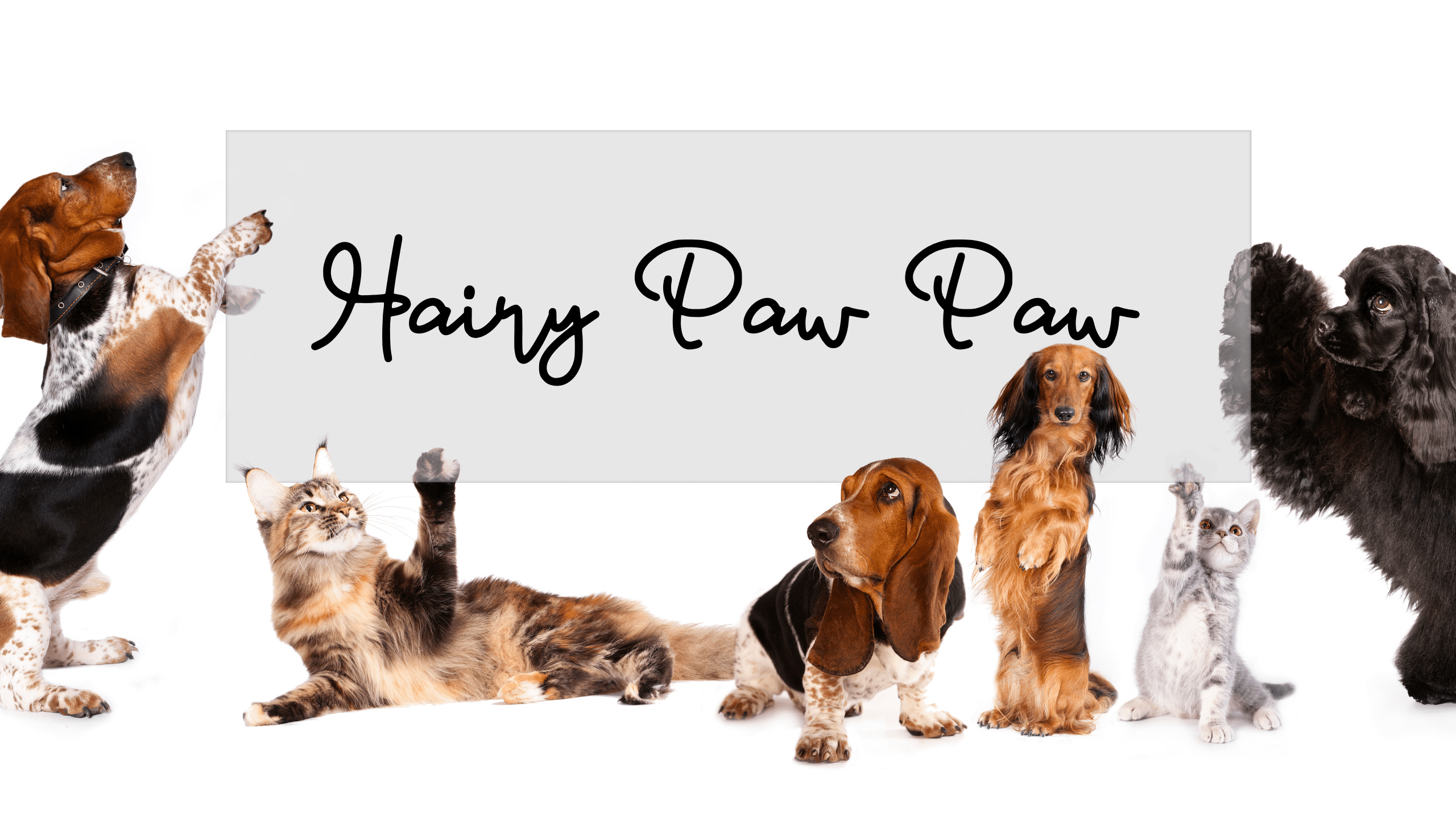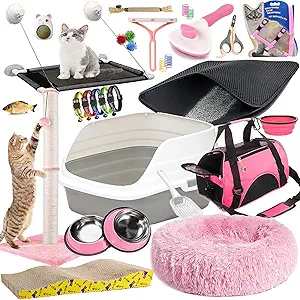This “Maine Coon Myths and Facts: What You Need to Know” post may contain affiliate links, which means I’ll receive a commission if you purchase through my link, at NO EXTRA COST TO YOU
Maine Coon Myths and Facts: What You Need to Know
Maine Coon cats captivate cat lovers with their impressive size, unique appearance, and affectionate personalities. Often called the “gentle giants” of the cat world, these felines hold a special place in the hearts of their owners. However, their fame also brings with it plenty of myths and misconceptions. Here, we’ll explore the most common myths about Maine Coons and reveal the facts behind them. Knowing the truth helps owners better understand and care for these wonderful cats.
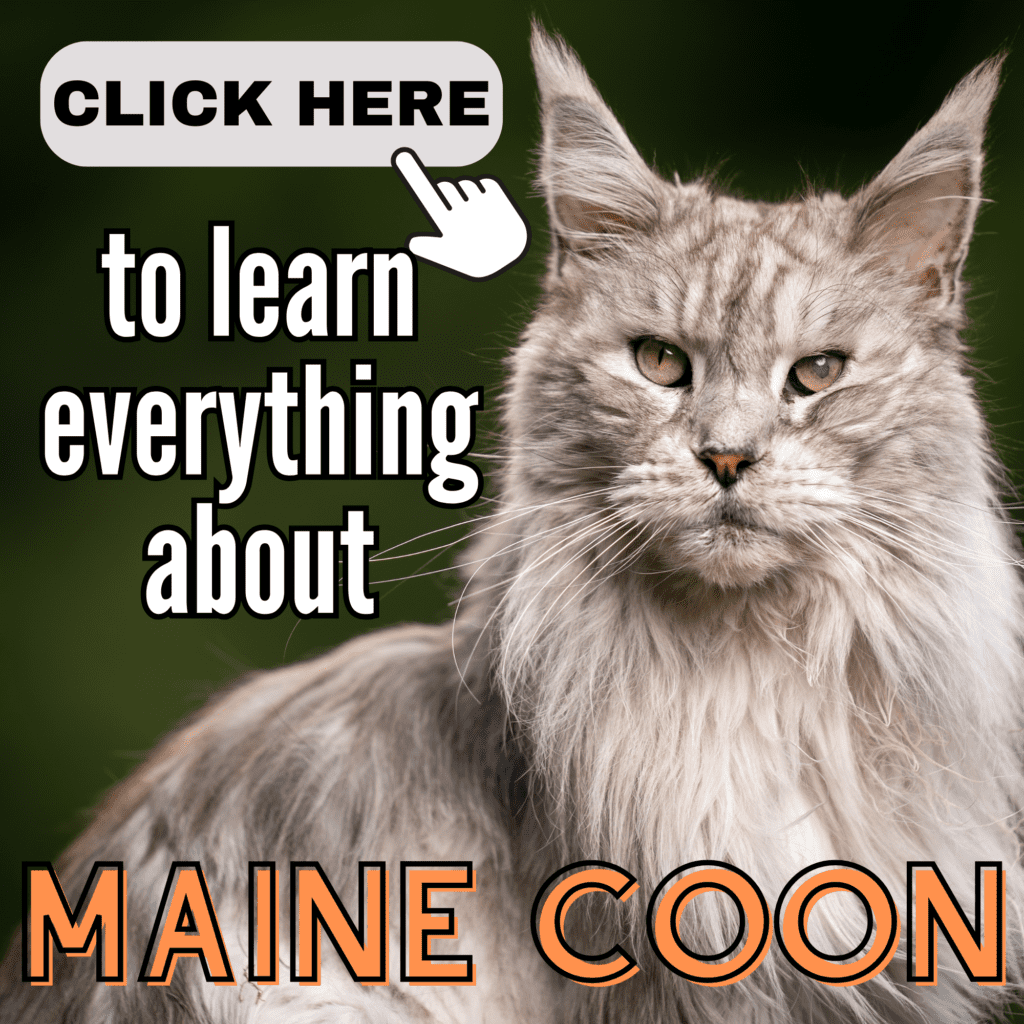
Myth #1: Maine Coons Are Part Raccoon
One of the most popular myths claims that Maine Coons descended from raccoons. People often attribute this to their bushy tails, tufted ears, and rugged appearance, which resemble a raccoon’s features. While this theory may seem amusing, science tells a different story.
The Fact: Cats and raccoons belong to entirely different species, making crossbreeding impossible. Instead, Maine Coons likely developed their unique traits through natural selection in the cold climates of New England. Their thick fur and bushy tails helped them stay warm, and over time, these traits became common in the breed.
Why This Matters: Believing that Maine Coons have raccoon genes may lead to unrealistic expectations about their behavior. Understanding their true origins helps owners appreciate the natural traits that make these cats so special.
Myth #2: Maine Coons Don’t Need Grooming
With their long, luxurious coats, Maine Coons look like they’d need plenty of grooming. However, some people believe their coats remain low-maintenance and tangle-free. Unfortunately, this assumption doesn’t hold up, especially for indoor cats.
The Fact: Maine Coons do require regular grooming. Their coats tend to form mats if left unattended, especially in areas like the neck and tail. Regular brushing, at least two to three times per week, helps prevent tangles and keeps their fur healthy. Furthermore, grooming sessions also give owners a chance to check for any skin issues or parasites.
Why This Matters: Skipping grooming leads to painful mats that may require professional removal. By brushing regularly, owners keep their Maine Coon comfortable and their coat in excellent condition.
Myth #3: Maine Coons Are Always Huge
Many people believe Maine Coons grow larger than any other domesticated cat breed. Stories of Maine Coons reaching 30 pounds or more circulate widely, giving the impression that all Maine Coons become giants. While they do tend to be larger than the average cat, this myth exaggerates their typical size.
The Fact: While Maine Coons are one of the largest cat breeds, most weigh between 10 and 25 pounds. Males generally weigh more, while females tend to be on the lighter end. Genetics, diet, and activity level all play roles in determining their size. Some Maine Coons do reach impressive sizes, but not all cats of this breed grow to the same massive proportions.
Why This Matters: When adopting a Maine Coon, potential owners should understand that these cats vary in size. Expectations based on extreme examples may lead to disappointment, so focus instead on the unique personality traits that make Maine Coons wonderful companions.
Myth #4: Maine Coons Are Aloof and Independent
Due to their majestic appearance and size, many people assume that Maine Coons act more like independent, solitary animals. However, this couldn’t be further from the truth for most Maine Coons.
The Fact: Maine Coons are highly social and thrive on companionship. These cats tend to be affectionate, playful, and often quite attached to their human family members. They enjoy following their owners around the house, joining family activities, and even learning tricks. In fact, many Maine Coon owners compare their personalities to dogs because of their loyalty and sociable nature.
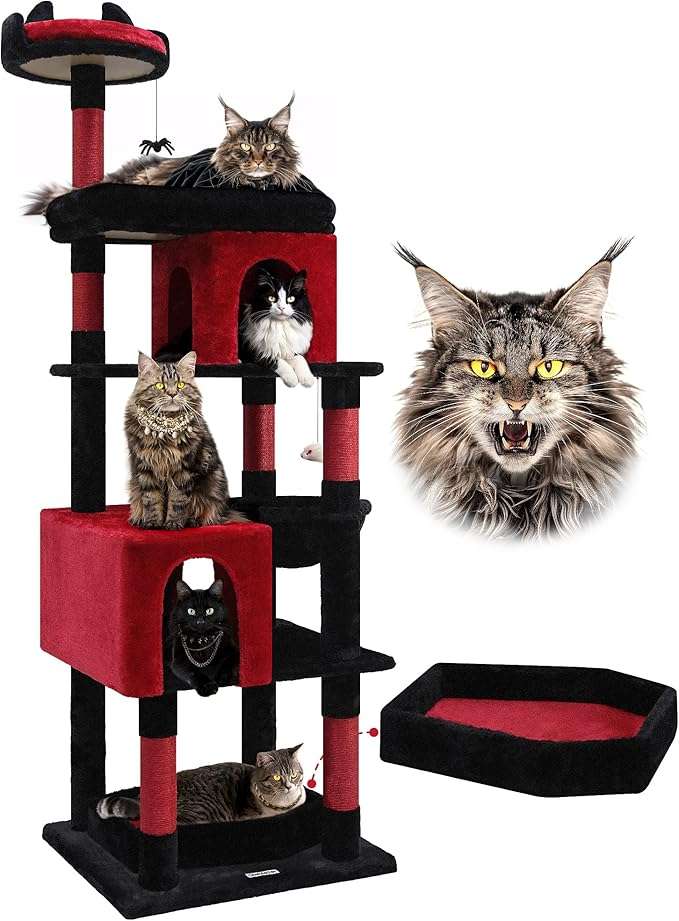
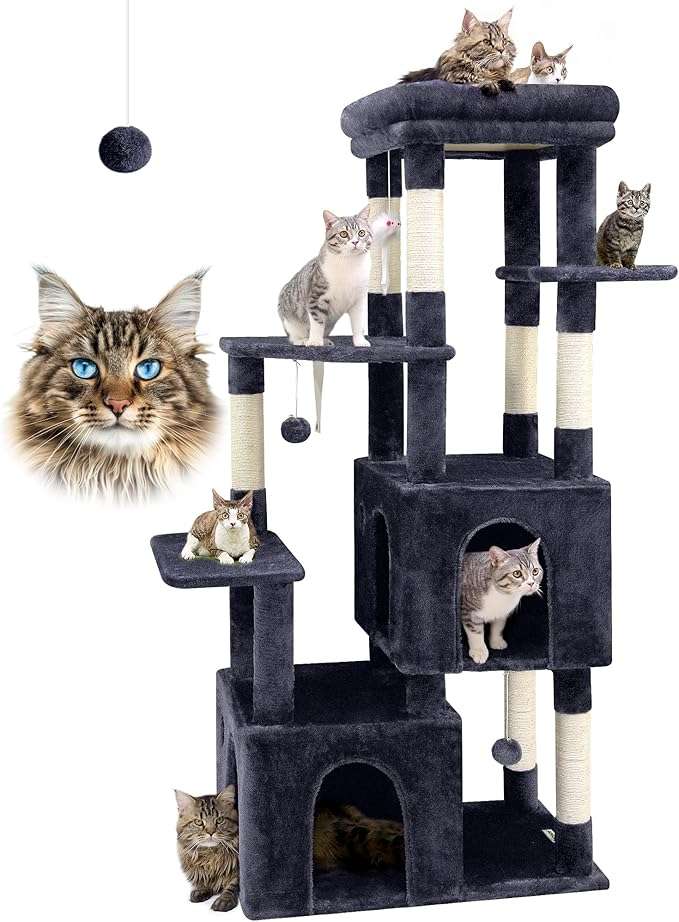
Why This Matters: Believing in their independence might lead owners to overlook their need for interaction. Maine Coons love to be involved, so providing attention, playtime, and mental stimulation will keep them happier.
Myth #5: Maine Coons Only Like Cold Weather
Since Maine Coons originated in Maine, known for its chilly winters, people often believe that these cats prefer cold environments. They picture Maine Coons thriving only in colder climates due to their thick, waterproof fur.
The Fact: Maine Coons adapt well to various climates. While their dense fur protects them in colder weather, they can live comfortably in warmer areas as well. In hot climates, providing ample water, shade, and air conditioning keeps them comfortable. Shedding increases during warmer months, so brushing can help keep them cool.
Why This Matters: Maine Coon owners should avoid assuming that their cats automatically tolerate extreme temperatures. By creating a comfortable environment, owners help them adapt to all seasons.
Myth #6: Maine Coons Are Lazy Cats
Some people mistakenly believe that Maine Coons, due to their size, tend to be lazy or less active than other breeds. However, their natural curiosity and intelligence tell a different story.
The Fact: Maine Coons enjoy playtime, exploring, and engaging in interactive games. They love to climb, chase toys, and even learn new tricks. This breed possesses a playful, kitten-like energy that often stays with them well into adulthood. Keeping them active with toys, cat trees, and puzzle feeders ensures they stay happy and engaged.
Why This Matters: Neglecting to provide mental and physical enrichment can lead to boredom and weight gain. Maine Coons thrive on interaction, so including playtime in their daily routine keeps them stimulated and healthy.
Myth #7: All Maine Coons Are Purebred
Many people assume that every Maine Coon must be purebred. However, as with other popular breeds, mixed-breed Maine Coons are also common. The presence of some Maine Coon characteristics doesn’t necessarily mean a cat is purebred.
The Fact: Many Maine Coons display typical traits like tufted ears, bushy tails, and large paws, but they may not be purebred. Mixed Maine Coons might still carry similar physical features and personalities, yet they may differ slightly in size, coat, or behavior. Official breed standards require pedigree certification, which most pet cats don’t possess.
Why This Matters: Owners should understand that mixed-breed Maine Coons still make excellent pets, even without purebred status. These cats may still carry many beloved Maine Coon traits without an official pedigree.
Myth #8: Maine Coons Don’t Get Along with Other Pets
Due to their size and independent nature, some people think Maine Coons have trouble coexisting with other pets. In reality, their personalities often make them ideal companions in multi-pet households.
The Fact: Maine Coons generally get along well with other cats and even dogs. They usually approach social situations calmly and tend to adapt to new pets given proper introductions. Their relaxed and gentle nature helps them become part of a multi-pet family without much trouble. However, individual personalities always play a role, so introducing pets gradually remains essential.
Why This Matters: Knowing that Maine Coons often do well with other pets helps owners decide if this breed fits their household. Socialization enriches their lives, making them more adaptable to various environments.
Conclusion
The myths surrounding Maine Coons paint an inaccurate picture of these gentle giants. From their supposed raccoon ancestry to their imagined independence, these myths miss the essence of what makes Maine Coons special. Recognizing the facts about their grooming needs, social nature, adaptability, and playfulness enables owners to care for them effectively.
When you know the truth about Maine Coons, you can appreciate them as they truly are—loving, loyal, and uniquely suited to family life. By understanding their genuine traits, you create a happy, healthy home for your furry friend. Maine Coons don’t just impress with their looks; they bring boundless affection, loyalty, and joy to those who take the time to understand them.
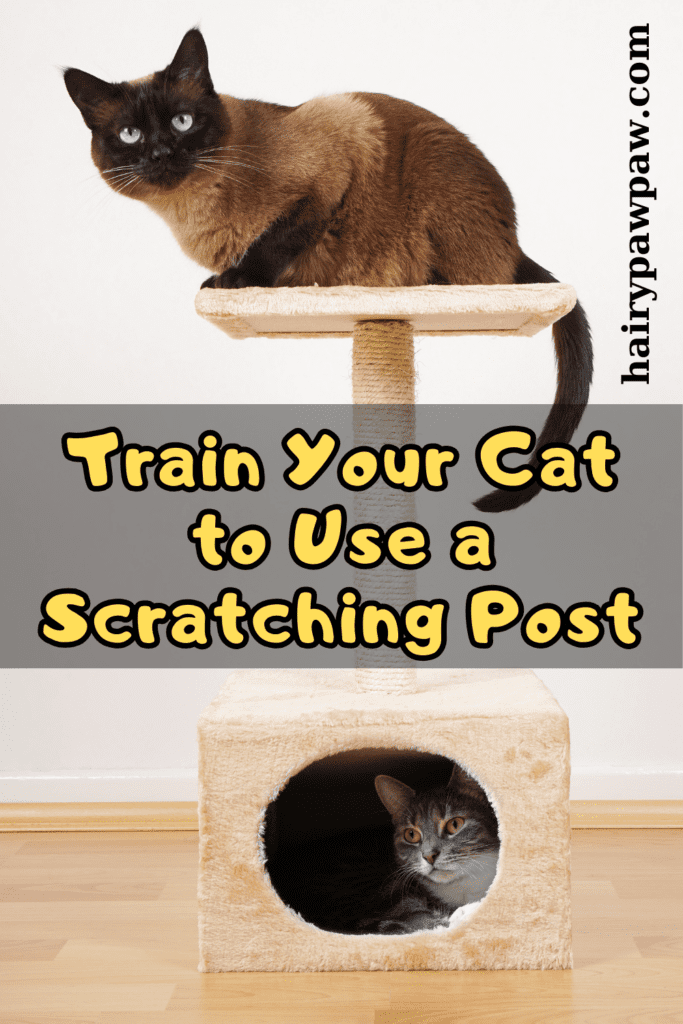
How to Train Your Cat to Use a Scratching Post
Cats have a natural instinct to scratch, which helps them keep their claws healthy, mark their territory, and stretch their muscles. However, training your cat to use a scratching post instead of your furniture can be a challenge. With the right approach, you can guide your feline friend to happily use their scratching post. Here’s a comprehensive guide to help you train your cat to scratch where you want them to.

